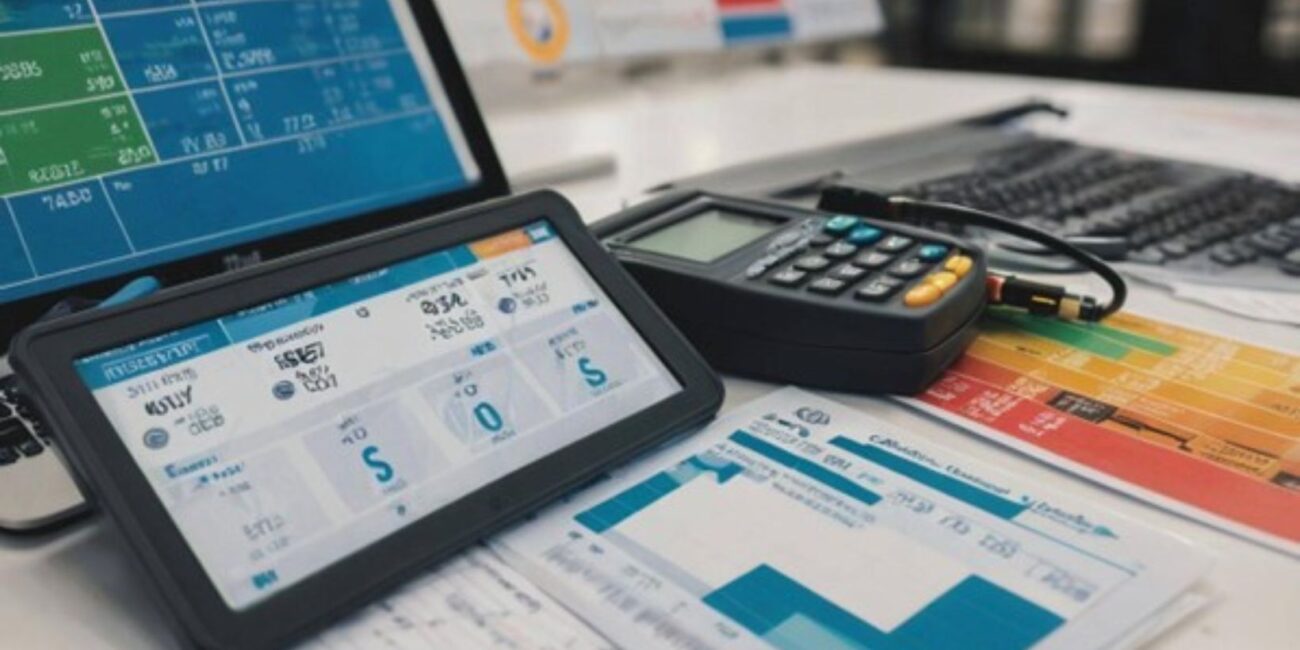Fleet fuel cards offer numerous benefits, including cost control by monitoring employee spending, enhanced fraud prevention through detailed transaction tracking, and significant time savings thanks to automatic reporting features. Additionally, they provide convenience by being accepted at approximately 95% of U.S. gas stations and thousands of maintenance locations, making them an essential tool for businesses with vehicle fleets.
Running a fleet of vehicles comes with its own headaches—tracking each gallon of fuel and every mile traveled consumes valuable time that could be better spent on strategic planning. Imagine if there was an easier way, much like how a chef streamlines cooking with prepped ingredients before service begins. This is where fleet fuel cards prove invaluable.
Overview of Fleet Fuel Cards
Fleet fuel cards serve as a financial tool for businesses managing a fleet of vehicles, allowing for more streamlined control over fuel expenses. Designed specifically for managing costs related to fuel and maintenance, these cards operate similarly to credit cards but with added features that cater directly to the needs of businesses with multiple vehicles. They enable detailed tracking of fuel purchases and associated maintenance costs, something traditional credit cards fall short of.
A distinct advantage of fleet fuel cards is their ability to set strict usage guidelines. For example, a company can restrict card use solely for fuel transactions or limit purchases to specific fuel types, ensuring greater control over spending. Imagine how a logistics company with dozens or hundreds of vehicles can benefit from this; it prevents unauthorized expenses and ensures every dollar spent is accounted for.
Fleet fuel cards also enhance security while reducing fraud risk. Built-in safeguards like transaction alerts and detailed reporting tools provide businesses peace of mind. Managers can review spending habits closely and evaluate employee behaviors involving fuel purchases, helping identify potential misuse.
Beyond improved oversight and security, these cards often come with additional perks—such as rebates or discounts—that contribute significantly to long-term savings. These benefits are crucial not only for effective cost management but also for fostering sustainable operational practices within any business reliant on vehicle fleets.
Financial Advantages
One of the most compelling reasons to adopt a fleet fuel card system lies in its direct financial benefits, which extend beyond simply discounted fuel prices. The potential for cost savings through these cards can significantly impact a company’s finances. Imagine being able to track and manage fuel purchases with the accuracy of an accountant while enjoying substantial discounts. This scenario is a reality for many businesses utilizing fleet cards.
Cost Savings and Discounts
Let’s explore the numbers and mechanics behind these savings. Consider a small delivery company called XYZ Couriers that transformed its financial outlook by switching to fleet cards. They reported annual savings of 10% on fuel expenses after making this change. That’s not just a fraction; it’s a sizeable portion of their operational budget that can now be reinvested elsewhere in their business.
Research indicates that many fleet cards offer discounts ranging from 2-5% per gallon at various gas stations. These discounts might appear modest individually, but when aggregated across numerous transactions, they can translate into substantial annual savings for fleets with large fuel consumption.
Beyond mere discounts, there are additional financial advantages:

- Fuel Rebates: Fleet card providers often include rebate programs that reward businesses for fueling up at designated gas station partners. This bonus can accumulate over time, reducing overall expenditures even further.
- Tax Reporting: Navigating taxes is never fun, but fleet fuel cards help simplify this process significantly. By generating detailed monthly spending reports, these cards allow companies to categorize expenditures accurately, identifying deductible fuel-related costs and potentially saving hundreds on tax bills each year.
- Improved Budgeting: Effective budget management hinges on accurate data, and fleet fuel cards provide that transparency. With clear transaction records, companies can forecast their expenditures better, aligning their finances with planned operations.
With these financial advantages in mind, it becomes clear how essential it is to harness tools that enhance both savings and tracking capabilities in fleet operations. Now, let’s shift focus and consider how this translates into greater productivity, efficiency and reducing fuel costs within fleet management systems.
Efficiency in Fleet Management
Time is indeed one of a business’s most valuable assets, and using fleet fuel cards can unlock significant time savings for fleet managers. One indispensable advantage is streamlined record-keeping. Gone are the days of accumulating receipts and spending hours inputting data into spreadsheets after every fill-up. With fuel cards, each transaction automatically logs essential details such as purchase amount, date, and location right at the pump. This not only saves time but also minimizes human error associated with manual entries.
Implementing fleet cards means businesses no longer have to shuffle through piles of paperwork when preparing budgets or audits. This automation allows for more accurate financial tracking and data analysis. Consider this: if a plumbing company adopts fleet fuel cards, they can effortlessly monitor how much fuel each vehicle uses over time without manually sifting through receipts. This enhances their ability to plan routes effectively and track whether certain vehicles are costlier to operate than others.
Spending Controls
Additionally, fleet fuel cards empower businesses with spending controls that can significantly minimize the risk of misuse. These cards allow managers to set transaction limits for each driver or vehicle. For example, if a company imposes a $50 limit per transaction, it not only curbs excessive spending but also curtails unauthorized purchases.
Businesses can even refine these controls further by restricting purchases to certain types of fuel or specific locations—effectively ensuring that funds are utilized precisely as intended. This level of oversight is invaluable; it ensures that employees are mindful of their expenditures while allowing management to keep tabs on how resources are being allocated within the fleet.
Ideal Users of Fleet Fuel Cards
Understanding who stands to benefit from fleet fuel cards is essential in recognizing their value. At the heart of it, fleet fuel cards serve as a smart solution for various types of businesses that rely heavily on vehicles for their operations.
To begin with, logistics companies are prime candidates for these cards. With extensive fleets tasked with transporting goods across regions, it’s crucial for these businesses to effectively monitor fuel expenditures and maintenance costs. A streamlined system allows them to capitalize on savings through price rebates at designated fuel stations, transforming what could be a considerable expense into manageable line items on their balance sheets.
When we look at service companies, such as plumbing or electrical services, the benefits are equally apparent. For these types of businesses, scheduling and managing multiple service calls throughout the day can make budgeting unnecessarily complex. Fleet fuel cards alleviate some of that burden by providing tracking capabilities that simplify expense management. Such efficiencies enable service providers to focus more on their work rather than on the intricacies of bookkeeping or administrative tasks.
Moreover, rideshare drivers, operating either independently or through larger organizations, find fleet cards to be immensely beneficial. With the need to manage expenses closely while maximizing income during busy hours, these drivers can leverage options for fleet cards to neatly categorize their fuel expenditures. Such capabilities pave the way for better budgeting while allowing vehicle owners to keep tabs on operational costs without getting overwhelmed by backend data analysis.
While logistics companies and service providers form a significant portion of the ideal users for fleet fuel cards, rideshare drivers represent an emerging demographic that can also harness these tools for effective financial management.

With these insights into who benefits from fleet fuel cards, let’s move forward to understand how to choose the right one that aligns with specific business needs.
Selecting the Perfect Fuel Card
Not all fleet fuel cards are created equal, making it essential to research and select one that aligns with your specific business requirements. One of the primary elements to weigh is network acceptance; it determines where you can use the card. Ideally, you want a card accepted at a wide range of gas stations—look for options accepted at 95% or more of gas stations across the U.S. This flexibility ensures your drivers won’t be stranded looking for an acceptable location when they need to refuel.
Once you’re clear on network acceptance, dive deeper into other features:
- Discounts and Rebates: A higher rebate at fewer stations might initially seem advantageous; however, if those stations are not convenient for your drivers, you’re limiting potential savings.
- Control Features: Cards that allow you to set spending limits or restrict fuel types help prevent unauthorized expenses and misuse. As one fleet manager put it, “Having a card that lets me control how much my employees can spend has been invaluable.”
- Reporting Capabilities: The importance of strong reporting tools cannot be overstated. Detailed reports reveal spending patterns, making it easier to identify inefficiencies and perhaps even save more money.
Remember that incorporating feedback from current users can also streamline your decision.
Ultimately, selecting the right fuel card is about choosing a partner that supports your business goals while providing significant savings and accountability.



